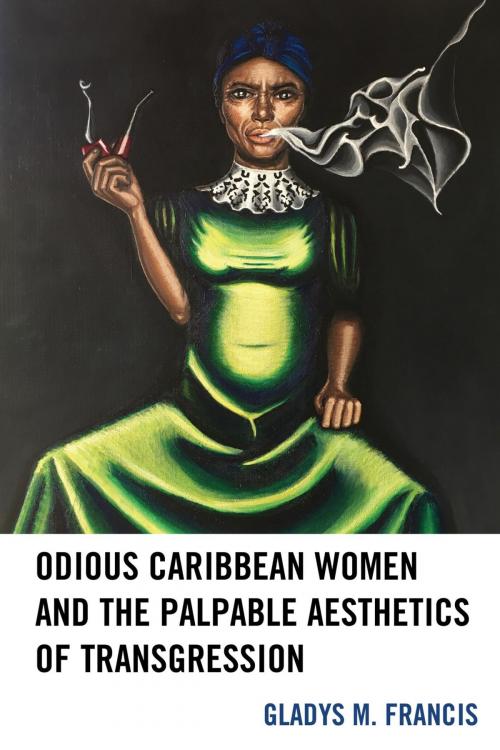Odious Caribbean Women and the Palpable Aesthetics of Transgression
Fiction & Literature, Literary Theory & Criticism, Central & South American, Women Authors| Author: | Gladys M. Francis | ISBN: | 9781498543514 |
| Publisher: | Lexington Books | Publication: | June 15, 2017 |
| Imprint: | Lexington Books | Language: | English |
| Author: | Gladys M. Francis |
| ISBN: | 9781498543514 |
| Publisher: | Lexington Books |
| Publication: | June 15, 2017 |
| Imprint: | Lexington Books |
| Language: | English |
Odious Caribbean Women and the Palpable Aesthetics of Transgression examines the methods through which the works of French Caribbean women resist hedonistic conceptions of pleasure, “art for art’s sake” aestheticism, and commodification through representations of “uglified” spaces, transgressive “deglamorified” women’s bodies in pain and explicit corporeal and sexual behaviors. Gladys M. Francis offers an original approach through her reading together of the literary, visual, and performing arts (as well as traditional Caribbean dance, music, and oral practices) to arrive at a transregional (trans-Caribbean and transatlantic), trans-genre (with regard to forms of text), and transdisciplinary conversation in Francophone studies, postcolonial studies, and cultural studies. This interweaving is illustrated through the artistic engagements of artists such as Ina Césaire, Maryse Condé, Sylvaine Dampierre, Fabienne Kanor, Lénablou, Béatrice Mélina, Gisèle Pineau, Simone Schwarz-Bart, and Miriam Warner-Vieyra. How can we investigate, theoretically or critically, the aesthetically unpleasing found in depictions of odious female protagonists or female performers? What is the aesthetic value of transgressional women’s bodies? This book presents novel tools to understand how these women artists mark and re-instate embodied trauma, survival, and resistance into history. It posits that cultural performances can disrupt a culture-as-text ethnocentrism, for, these works provide the means to expose the tangible aesthetics through which the body becomes an archive that bears the psychological, physical and structural suffering. This project also demonstrates the ways through which the corporeal realm offered by these transgressive works (through explicit female perspectives on sex, love, and gender) challenges our moral sensibilities, works to sabotage the voyeuristic gaze, and stimulates a new methodology for reading the women’s body. It focuses on the complex layers of identity formation and bodily representations with respect to issues of sex, consumerism, commodification, violence, gender and women studies, and ethics and moral issues.
Odious Caribbean Women and the Palpable Aesthetics of Transgression examines the methods through which the works of French Caribbean women resist hedonistic conceptions of pleasure, “art for art’s sake” aestheticism, and commodification through representations of “uglified” spaces, transgressive “deglamorified” women’s bodies in pain and explicit corporeal and sexual behaviors. Gladys M. Francis offers an original approach through her reading together of the literary, visual, and performing arts (as well as traditional Caribbean dance, music, and oral practices) to arrive at a transregional (trans-Caribbean and transatlantic), trans-genre (with regard to forms of text), and transdisciplinary conversation in Francophone studies, postcolonial studies, and cultural studies. This interweaving is illustrated through the artistic engagements of artists such as Ina Césaire, Maryse Condé, Sylvaine Dampierre, Fabienne Kanor, Lénablou, Béatrice Mélina, Gisèle Pineau, Simone Schwarz-Bart, and Miriam Warner-Vieyra. How can we investigate, theoretically or critically, the aesthetically unpleasing found in depictions of odious female protagonists or female performers? What is the aesthetic value of transgressional women’s bodies? This book presents novel tools to understand how these women artists mark and re-instate embodied trauma, survival, and resistance into history. It posits that cultural performances can disrupt a culture-as-text ethnocentrism, for, these works provide the means to expose the tangible aesthetics through which the body becomes an archive that bears the psychological, physical and structural suffering. This project also demonstrates the ways through which the corporeal realm offered by these transgressive works (through explicit female perspectives on sex, love, and gender) challenges our moral sensibilities, works to sabotage the voyeuristic gaze, and stimulates a new methodology for reading the women’s body. It focuses on the complex layers of identity formation and bodily representations with respect to issues of sex, consumerism, commodification, violence, gender and women studies, and ethics and moral issues.















